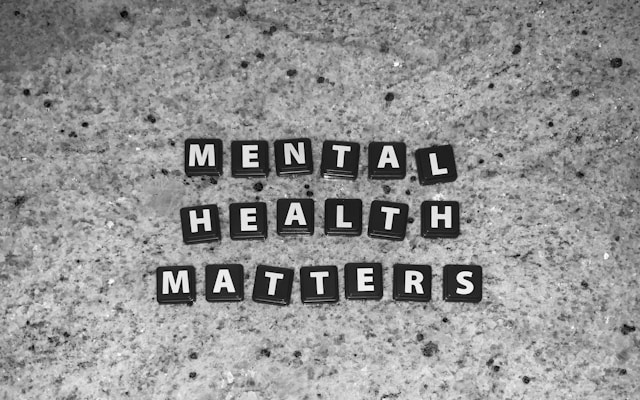Beyond the Stigma: Embracing Mental Health and Depression
For far too long, mental health has been shrouded in secrecy and shame. Conditions like depression, often whispered about rather than confronted, have left many suffering in silence. But the tide is turning. We're starting to have open conversations about mental well-being, and it's about time!
Breaking the Chains of Stigma
The stigma surrounding mental health significantly hinders people from seeking the help they need. Many individuals feel judged, weak, or embarrassed, which can prevent them from accessing support. This silence often exacerbates their symptoms and diminishes their quality of life.
It's important to address these misconceptions. Mental health conditions are just as legitimate and treatable as physical illnesses. For example, depression is a widespread mood disorder impacting millions around the world. According to the World Health Organization (WHO), about 3.8% of the global population suffers from depression, equating to roughly 280 million people, with actual figures potentially higher due to underreporting.
Shining a Light on Depression
Depression can manifest in various ways, with feelings of sadness, hopelessness, and a loss of interest in activities once enjoyed being some of the hallmarks. It can zap your energy, disrupt sleep, and make even basic tasks feel overwhelming.
But here's the good news: depression is treatable. If you're struggling, you're not alone. There are many resources available to help you get back on your feet. In fact, studies show that up to 80% of people with depression respond well to treatment, which can include therapy, medication, or a combination of both.
A Spectrum of Depression: Understanding Different Types
Depression isn't a one-size-fits-all condition. There are various types, each with its own characteristics:
- Major Depressive Disorder (MDD): This is the most common type, characterized by severe symptoms that significantly impact daily life.
- Persistent Depressive Disorder (PDD): Also known as dysthymia, this involves milder, chronic symptoms that last for at least two years.
- Bipolar Disorder: This condition involves cycles of depression and mania (elevated mood and energy levels).
- Seasonal Affective Disorder (SAD): This type is triggered by seasonal changes, often with symptoms worsening in fall and winter.
- Peripartum Depression: This can occur during pregnancy (prenatal) or after childbirth (postpartum)
Beyond Diagnosis: Age and Demographics
Depression can strike anyone at any time. However, some groups seem to be more at risk. According to the National Institute of Mental Health (NIMH), in the United States:
- Adults aged 18-25 experience the highest rates of depression, with an estimated 18.6% reporting at least one major depressive episode in 2021.
- Women (10.3%) are more likely to experience depression than men (6.2%).
Solutions for Addressing Mental Health Challenges:
Open Conversations: Break the silence surrounding mental health by fostering open, judgment-free discussions.
Educate yourself: Learn about mental health conditions and treatment options.
Talk to someone you trust: A friend, family member, therapist – open communication is key.
Seek professional help: Don't hesitate to talk to a doctor or therapist. They can provide a diagnosis and create a personalized treatment plan.
Practice self-care: Prioritize healthy sleep, exercise, and a balanced diet.
Connect with others: Social support is crucial. Surround yourself with positive and understanding people.
Depression is a major yet treatable condition affecting millions globally. By raising awareness about mental health and breaking down the associated stigma, we can foster an environment where seeking help is normalized. Remember, you are not alone in this journey. Numerous resources are available, from supportive communities to effective treatment options. Take the brave first step toward prioritizing your mental health. With the right support and dedication to self-care, managing depression and leading a fulfilling life is possible.
Let's continue the dialogue and share this information with those you care about. Together, we can dismantle barriers and encourage everyone to prioritize their mental health!




